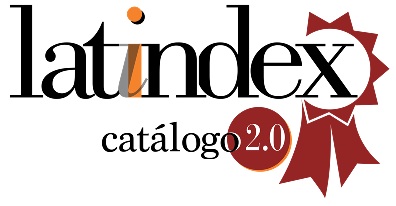Sustainability as a key factor in the textile and clothing sector under the consumer´’s perspective
DOI:
https://doi.org/10.5281/zenodo.6582808Keywords:
textile and clothing sector, sustainability, corporate social responsibility, consumer behaviour, fast fashionAbstract
Having in mind the current marketing situation, this paper aims to find out to what extent sustainability appears as a key factor in the evolution of the textile and fashion sector. A deductive method has been used, starting from general premises until reaching the most specific approaches of the study, focused on the statistical analysis of the data obtained through an online survey focused on consumers in the sector. The goal of the prospective empirical study has been a better understanding of the consumer’s purchasing behaviour and the way in which the responsibility and sustainability of the textile brands influence their decisions. In this sense, the conclusions suggest that consumers do not consider Corporate Social Responsibility actions of brands as a decisive factor and continue actively contributing to the current textile industry model, even when having begun to implement concrete sustainable habits in their way of life. Consumers are also perceived to be aware of the negative effects of the current textile model, but they are constantly influenced to contribute to their maintenance.
Downloads
References
Bardolle, O. (1979). Mode in France: les dessous du prêt à porter. Paris: Alain Moreau.
Beckman, T., Colwell, A. & Cunningham, P. H. (2009). The emergence of Corporate Social Responsibility in Chile: the importance of authenticity and social networks. Journal of Business Ethics, 86, 191-206. https://doi.org/10.1007/s10551-009-0190-1
Beltz, F. M., Peattie, K. y Gali, J. M. (2013). Marketing de sostenibilidad. Una perspectiva global. Barcelona: Profit.
Bratton, W. W. & Wachter, M. L. (2018). Adolf Berle, E. Merrick Dodd and the new American corporativism of 1932. En H. Wells (Ed.), Research Handbook of the History of Corporate and Company Law (pp. 534-569). Cheltenham (UK): Edward Elgar.
Cachon, G. P. (2019). A research framework for business models: what is common among fast fashion, e-tailing, and ride sharing? Management Science, 66(3), 1172-1192. https://doi.org/10.1287/mnsc.2018.3275
Cardona Bedoya J. M., Riaño Cuevas, D. M. y Vaca González, Y. C. (2017). Marketing y consumidor Green. Aplicación de la Matriz Mic Mac para el análisis de tendencias. Luciérnaga – Comunicación, 9(17), 12-23. https://doi.org/10.33571/revistaluciernaga.v9n17a3
CIE (2016). EURATEX. Consejo Intertextil Español. Recuperado el 11 de mayo de 2020 de: http://consejointertextil.com/euratex/
Cochran, P. L. (2007). The evolution of Corporate Social Responsibility. Business Horizons, 50(6), 449-454. https://doi.org/10.1016/j.bushor.2007.06.004
Control Union Certifications (2020). Textiles. Control Union Certifications. Recuperado el 11 de mayo de 2020 de: https://certifications.controlunion.com/es/industries/textiles-1
Comisión Europea (2001). Libro Verde: fomentar un marco europeo para la responsabilidad social de las empresas. COM (2001) 366 final. Comisión Europea, Bruselas. Recuperado el 11 de mayo de 2020 de: http://europa.eu/
Comisión Europea (2002) La responsabilidad social de las empresas: una contribución empresarial al desarrollo sostenible. COM (2002) 347 final. Comisión Europea, Bruselas. Recuperado el 11 de mayo de 2020 de: http://europa.eu/
Crane, A., McWilliams, A., Matten, D. y Moon, J. (2008). The Oxford Handbook of Corporate Social Responsibility. Oxford: Oxford University Press.
Dicken, P. (2011). Global shift: mapping the changing contours of the world economy (6th ed.). New York: The Guilford Press.
Elkington J (1997). Cannibals with forks: the triple bottom line of 21st century business. Oxford, MA: Capstone.
Flammer, C. (2015). Does corporate social responsibility lead to superior financial performance? A regression discontinuity approach. Management Science, 61(11), 2549-2568. https://doi.org/10.1287/mnsc.2014.2038
Forstater, M. (2010). Sectorial coverage of the global economic crisis. Implications of the global financial and economic crisis on the textile and clothing sector. Organización internacional del Trabajo / International Labour Organization. Recuperado el 9 de mayo de 2020 de: https://www.ilo.org/wcmsp5/groups/public/---ed_dialogue/---sector/documents/publication/wcms_162597.pdf
Friede. G., Busch, T. & Bassen, A. (2015). ESG and financial performance: aggregated evidence from more than 2000 empirical studies. Journal of Sustainable Finance & Investment, 5(4), 210-233. https://doi.org/10.1080/20430795.2015.1118917
Henderson, J. (2007). Global Sourcing. En Robertson, R. & Scholte, J.A. (Eds.), Encyclopedia of Globalization (vol. 2, pp. 539-541). New York: Routledge.
Horcajo, X. (2001). Una ONG compra acciones de Zara para tratar de informar sobre las condiciones laborales de la empresa. El País. Recuperado el 09 mayo 2020 de: https://elpais.com/diario/2001/08/14/economia/997740005_850215.html
López Acevedo, G. y Robertson, R. (2012). Sewing success? Employment, wages, and poverty following the end of the Multi-fibre Arrangement. Washington D.C.: The World Bank.
Margolis, J. D., Elfenbein, H. A. & Walsh, J. P. (2009). Does it pay to be good... and does it matter? A meta-analysis of the relationship between corporate social and financial Performance. SSRN Electronic Journal http://dx.doi.org/10.2139/ssrn.1866371
Martínez Caballero, E. & Vázquez Casco, A. I. (2006). Marketing de la moda. Madrid: Pirámide.
Muñoz Valera, S. (2020). La ecologización de la industria de la moda: actores y procesos. Anduli. Revista Andaluza de Ciencias Sociales, 19, 199-223. https://doi.org/10.12795/anduli.2020.i19.09
OEKO-TEX® (2020). OEKO-TEX® website. OEKO-TEX®. Recuperado el 11 de mayo de 2020 de: https://www.oeko-tex.com/en
OIT (2017). Conventions and recommendations. Organización Internacional del Trabajo / International Labour Organization. Recuperado el 09 de mayo de 2020 de: http://www.ilo.org/global/standards/introduction-to-international-labour standards/conventions-and-recommendations/lang--en/index.htm
OMC (2020). Textiles: acuerdo. Organización Mundial del Comercio. Recuperado el 09 de mayo de 2020 el: https://www.wto.org/spanish/tratop_s/texti_s/texintro_s.htm
ONU (2015): Objetivos de Desarrollo Sostenible. Organización de las Naciones Unidas. Recuperado el 11 de mayo de 2020 de: https://www.un.org/sustainabledevelopment/es/objetivos-de-desarrollo-sostenible/
ONU (1948). Declaración Universal de los Derechos Humanos. Resolución 217 A (III) de la Asamblea General de Naciones Unidas. Naciones Unidas. Recuperado el 09 de mayo de 2020 de: https://www.un.org/es/about-us/universal-declaration-of-human-rights
Orlitzky, M., Schmidt, F. L. & Rynes, S. L. (2003). Corporate social and financial performance: a meta-analysis. Organization Studies, 24(3), 403-441. https://psycnet.apa.org/doi/10.1177/0170840603024003910
Parlamento Europeo. (2011) El PE aprueba nuevas normas sobre el etiquetado de los productos textiles. Parlamento Europeo. Recuperado el 11 de mayo de 2020 de: https://www.europarl.europa.eu/news/es/press-room/20110510IPR19126/el-pe-aprueba-nuevas-normas-sobre-el-etiquetado-de-los-productos-textiles
Parlamento Europeo (2017). Importaciones textiles: PE pide reglas europeas para atajar explotación laboral. Parlamento Europeo. Recuperado el 11 de mayo de 2022 de: https://www.europarl.europa.eu/news/es/press-room/20170424IPR72039/importaciones-textiles-pe-pide-reglas-europeas-para-atajar-explotacion-laboral
Peñalosa Otero, M. E. & López Celis, D. M. (2016). La generación de los millennials frente al consumo socialmente responsable. Cuadernos Latinoamericanos de Administración, XII(23), 73-81. https://doi.org/10.18270/cuaderlam.v12i23.2127
Sanmiguel, P. (2020). Influencer marketing: conecta la marca con tu público. Madrid: Lid.
Schwartz, M. S. (2011). Corporate Social Responsibility: an ethical approach. Ontario: Broadview Press.
Seele, P. & Gatti, L. (2017). Greenwashing revisited: in search of a typology and accusation-based definition incorporating legitimacy strategies. Business Strategy and the Environment, 26(2), 239-252. https://doi.org/10.1002/bse.1912











































